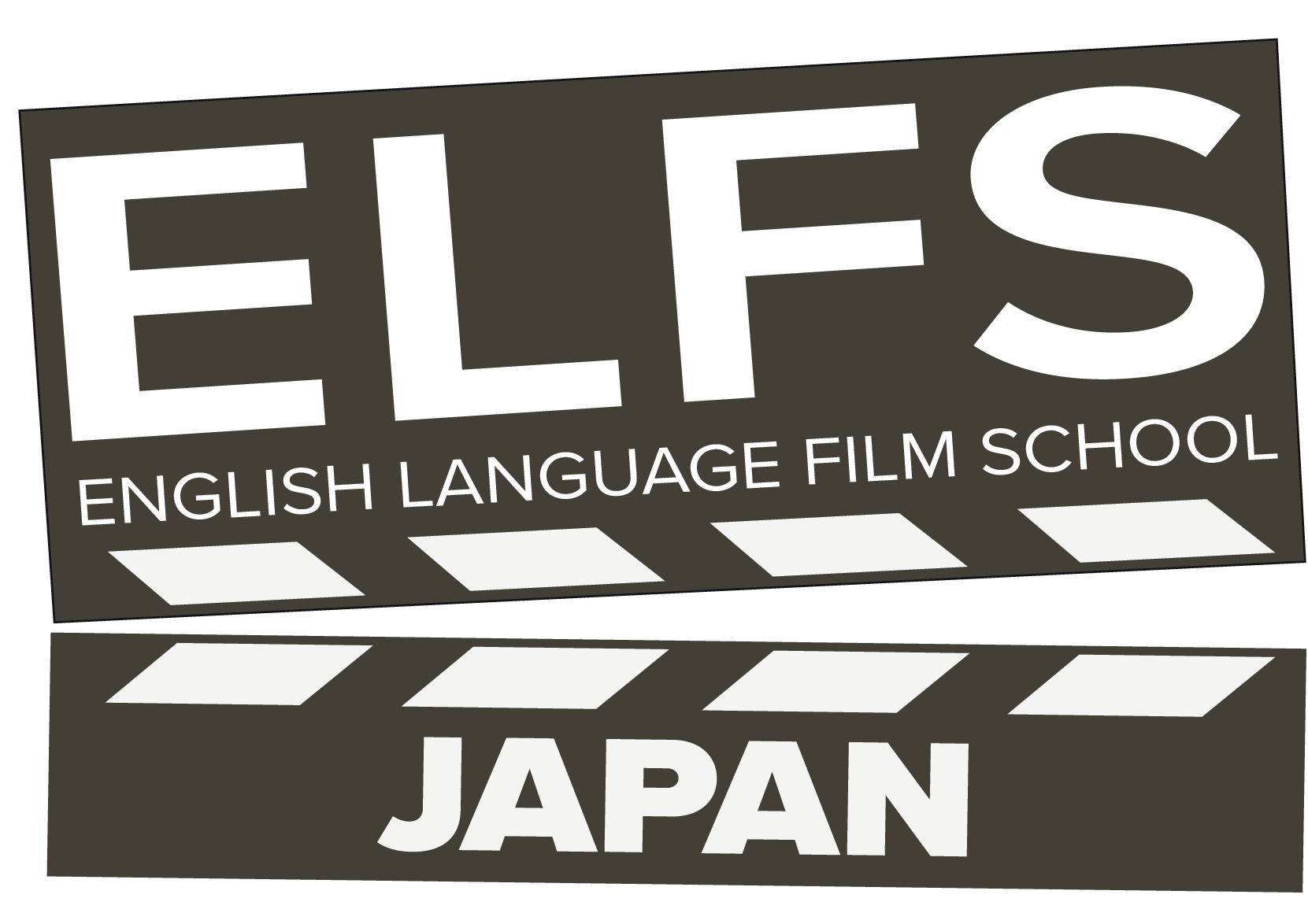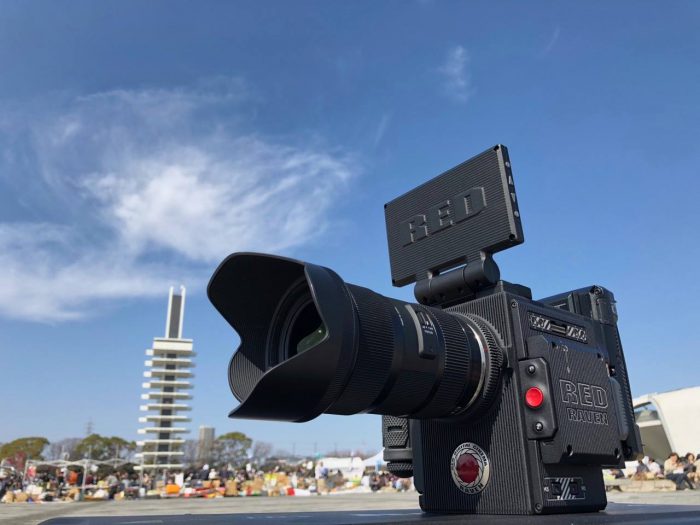
How Temple Studios is making RED digital cinema cameras accessible to Tokyo filmmakers — Q&A with one of the founders
Leo Liwag is a Tokyo-based multi-disciplinarian filmmaker and co-founder of cinema camera rental service, Temple Studios, which offers RED Raven rental packages at an affordable price point. Raised in California, Liwag has worked in production, visual effects (including on The Force Awakens) and is currently developing his own short film, Connections. I sit down with him one sunny lunchtime in Shibuya, to ask about setting up his rental company, his personal projects, and tips for shooting in Tokyo.
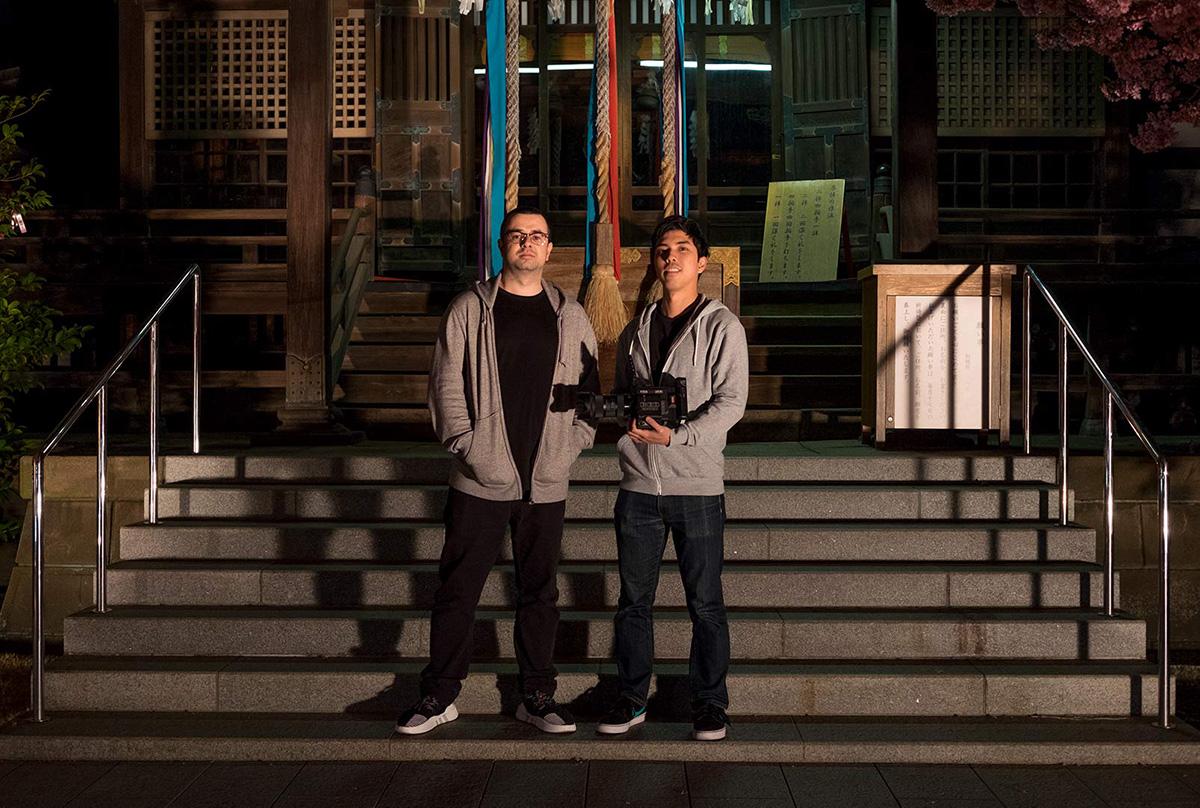
English Language Film School Japan: How would you define yourself as a filmmaker? I know you wear a lot of hats.
Leo Liwag: I would say mainly director of photography. And colour grading too. I like to be in charge of the picture itself. I don’t really enjoy directing that much, so I’m always more about the frame and how it looks in general.
ELFS: I always find it refreshing when I meet people who don’t kid themselves into thinking they enjoy directing.
LL: The director has to work with the actors, and you can’t be this tyrant on set, or else you’re not a good director. It’s really hard to find that balance of listening to your actors and staying true to your vision. That’s why I prefer director of photography and colour grading work, because the majority of the time you’re left more to your own devices. You talk to the director, who says, “All right, I want this look,” then it’s up to you to achieve what they want. That’s your only confine usually.
ELFS: In the past, you’ve worked as a production assistant, a DIT, and in VFX on The Force Awakens, is that right?
LL: That’s right. I was doing PA and camera gigs for a while, and DIT [digital imaging technician] work on music videos and short films was my main bread and butter. Then I got picked up by a team that did some postproduction work on Star Wars, which was real fun. Way different to probably any other film you could work on. It’s so much more organised and controlled.
ELFS: How did you get the Star Wars gig?
LL: I was working on our own short Star Wars fan film at film school. I was sitting in the hallway of our editing studio at school, making a lightsaber design on my MacBook, and this guy walks by and goes, “Oh you know how to do this?” It was actually my first time doing that ever but we’re always told to fake it till you make it so I said, “Of course, I’ve been doing this for a long time.” We exchanged cards and he said he would give me a call in two weeks. I wrote him off as just another dude from Hollywood wanting visual effects for free. But almost two weeks later I get a call asking if I want to do a little work for Star Wars and I was like, “Of course I’ll do this, it’s like a dream come true.”
ELFS: So how did you end up in Japan?
LL: I was working in the LA film industry for a few years and it was real fun, I love Los Angeles, but it became a bit of a grind trying to schmooze my way into every single job. I hadn’t taken a vacation in twelve years, not even summer break or anything like that. I needed to do something new, and decided to come to Japan. Not with the intention of pursuing filmmaking or anything; I just wanted to come here and experience something different. Turns out I love it and I want to stay forever.
ELFS: How did Temple Studios come into existence?
LL: My friend (with whom I started the studio) and I were looking at all the major players here in terms of camera rentals and were shocked how absurdly high the prices are. I couldn’t believe it, especially coming from Los Angeles where most filmmakers can get a decent cinema package for a relatively low cost. Here, renting a RED or Alexa body alone is over the equivalent of $1200 US. What budding filmmaker who wants to make a high-quality movie can afford that? That’s probably the sum of their entire budget, if they even have one. So the reason we started the studio was to help filmmakers.
Especially in the tight knit foreign filmmaker community, the majority of us don’t have a huge budget to work with, let alone being able to go to one of these rental houses, and being able to speak Japanese and fill out Japanese contracts… If we can help other people bypass that and let them get hold of a good camera for cheap, with low hassle, why not?

ELFS: I really like how you are making it affordable and accessible to filmmakers and also building a community. You’re not only incentivising people to become repeat customers through a loyalty programme, but also to refer their friends to you.
LL: Exactly. Everyone does the loyalty programme here, at least restaurants do, so we came up with this idea of a stamp card, where after renting the camera five times, you’ll get a day of rental for free. The referral programme is self-explanatory. If you refer a friend who rents with us for two or more days, you will receive a free day of rental. It’s all about building a community, especially as a no-name in the rental sector. We need to do stuff that will set us apart, and who doesn’t like the tactile feedback of getting a loyalty card stamped?
ELFS: So if someone wants to rent from you guys, what is the process like?
LL: We have a website where you can schedule the exact day you want the camera, which will submit an electronic form to us and we’ll reach out for you to come pick up the camera. It’s pretty straightforward and that’s another one of the differentiation points of our company, compared to other studios where you have to look online, physically write down what you want, and then call the company on the phone. Many foreigners, especially if they’re new to Japan, might have a hard time with Japanese. Not that we don’t deal with Japanese customers — we have an entire website in Japanese. But either way, being able to book online just streamlines the whole process.
ELFS: The two rental houses I’ve dealt with here, when making an account I had to fill in a multi-page paper form then fax it over with copies of ID, which is a real hassle.
LL: Ours is pretty streamlined. The day you pick it up, you just give us your ID, we make a photocopy of it, and that’s about it.
ELFS: So what’s the long-term vision with Temple Studios?
LL: We definitely want to expand, hopefully this year, with a different tier of camera. Having worked at a film festival, I know a lot of nice statistics about which cameras people are using, so we do want to eventually get an Alexa and make another really affordable package, applying the same principle.
We’ll also be building up our current RED package to where it can be used for anything like music videos, or set productions, or even documentary projects. We want to design packages for each of those scenarios. Currently I do also offer my own services if people need them, as we’ve had a couple clients ask whether we come along with the camera as DIT or camera assistant. It wasn’t originally in the business plan but it got demanded so much that we decided I might as well offer my production expertise for an additional fee. And of course, we want to start making our own films as well.
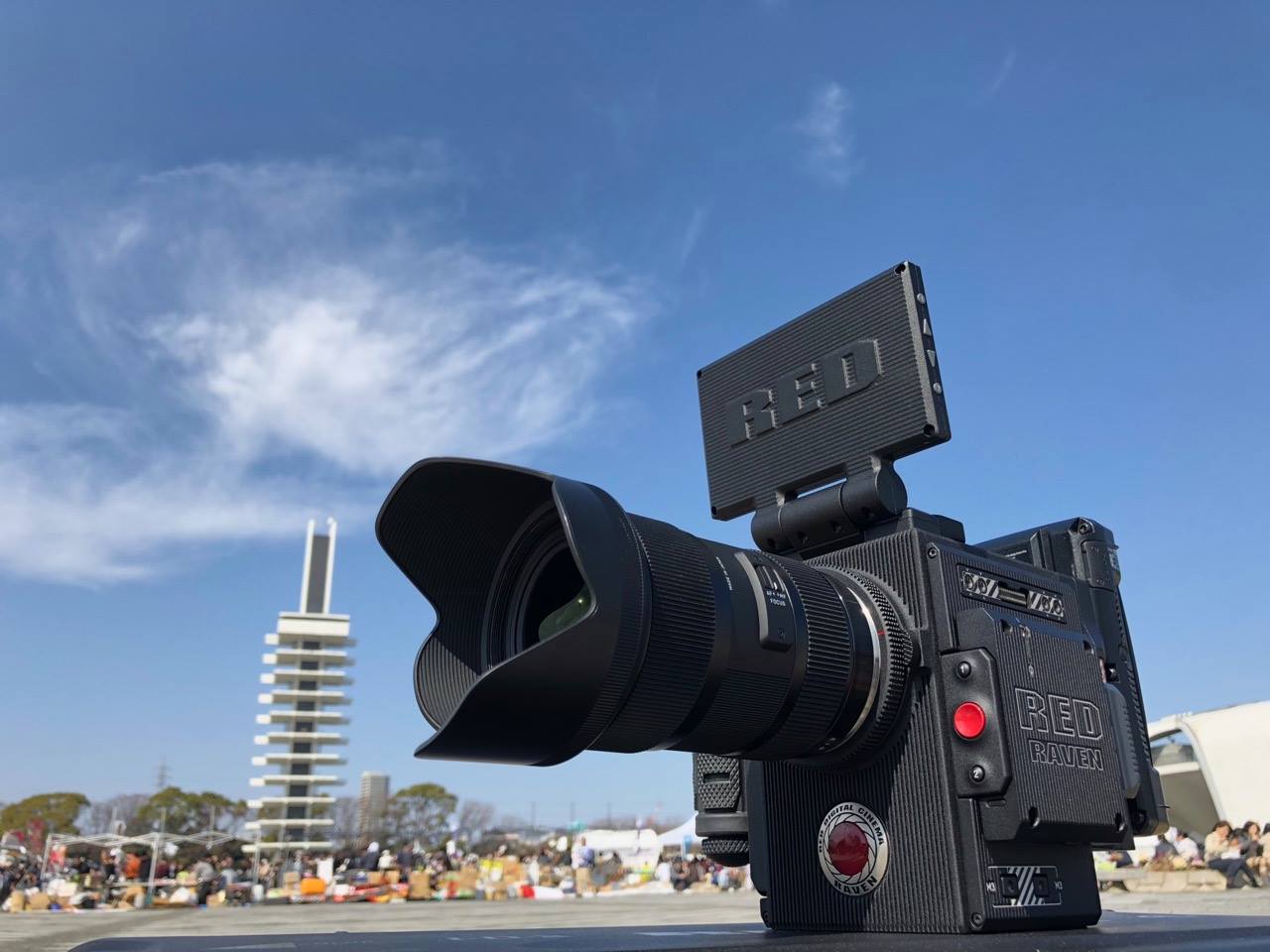
ELFS: Let’s talk about some of your other projects. I know you’ve been working as a colourist in a Japanese short film, could you talk about that?
LL: It’s a really interesting film looking at the societal structures of how Japan treats women, particularly after a certain age. You hear stories about women over the age of X thinking they’re not worthy of anything. That’s what this movie is about, putting a microscope to this topic.
The workflow for me has been pretty interesting. I’m used to working really strictly close with the director when I’m colour grading but this director
just said, “Go ahead.” I asked him, “Well do you have a look you want?” and he said, “Go ahead, do whatever you want!”
I originally had sent him a sample ramping from the log footage he provided into my colour grade, and he really loved that so that was my only starting point. I’m almost done with the first pass and I’ll give it to the director and DoP so they can go over it. If they like it, I’ll do a final pass to clean it up, take out all the noise, and add any little things they want. It’s a pretty fun project and it’s the first time I’ve not had direction working closely with the director. They’re giving me ultimate creative control, within reason.
ELFS: Do you prefer working independently like this, or being given a very clear brief?
LL: I kind of like a balance of that. There’s always the fear of having ultimate creative control over your position then submitting something that you’ve worked over 70 hours on and them saying, “What is this? I don’t like it.” I do like when a director isn’t just standing over my shoulder saying, “Put the gamma down, change the highlights, do this do that” — that’s just micro managing. If they know all that, they might as well do it themselves. I do like just a little bit of direction: “The film is gritty,” “It’s a dark film,” “Can you give me this feeling?” because that gives me a sandbox instead of a completely blank slate. It’s super important for directors to give a feeling.
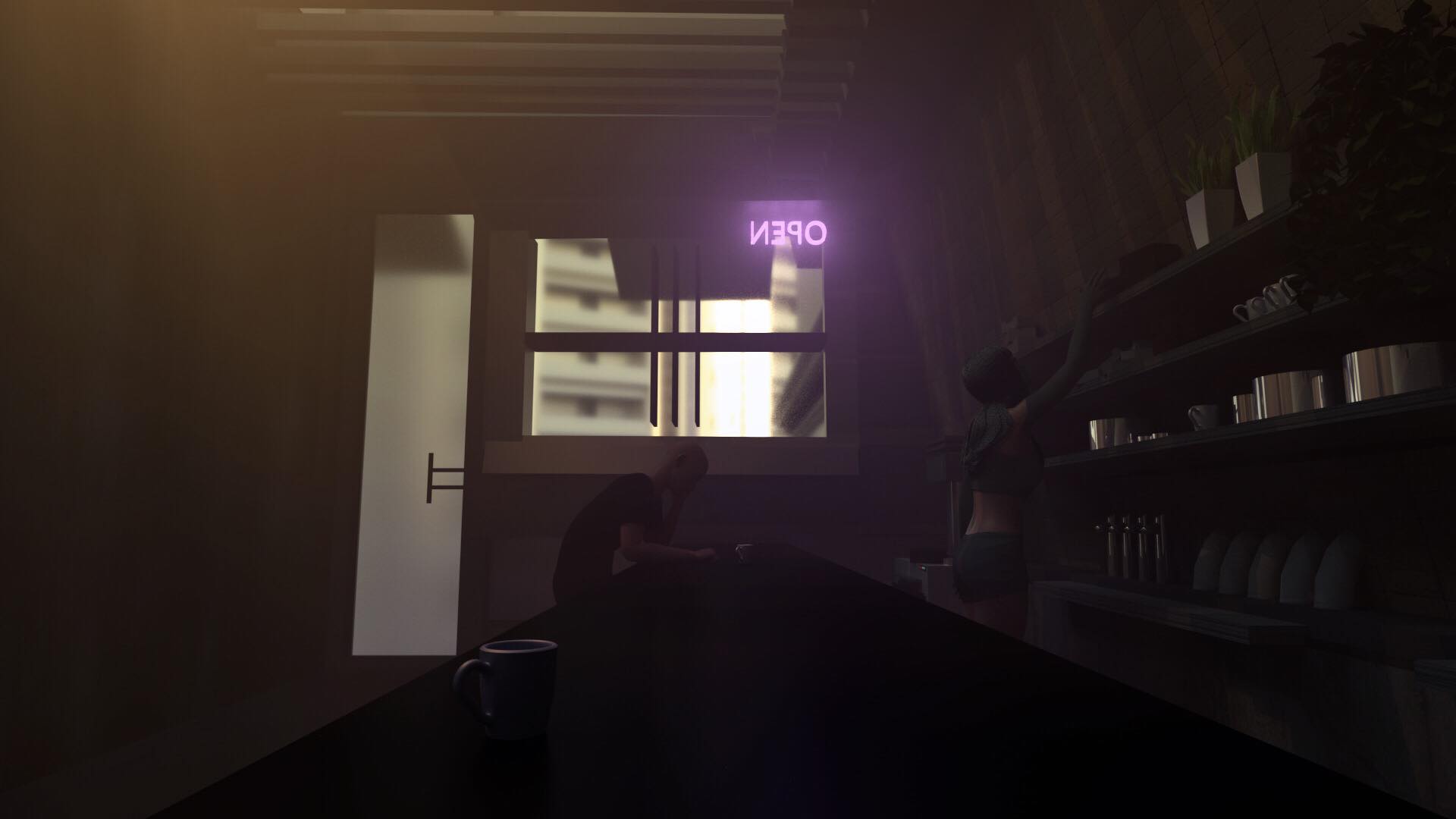
ELFS: Tell me about your short film, Connections.
LL: I started writing this, around October. I was super inspired by a short I’d watched that day, a Taiwanese film, and I wrote it in a night. My story is about a wreck of a human being who falls in love with an AI girl who is basically about to die and get recycled, and it’s about her journey trying to learn what it’s like to be a human being. There are lot of undertones in it that pertain to our society, like a lot of race relations subtext, police control, etcetera.
ELFS: I like that it has subtext and can be read allegorically. Having watched so many short films in the past, I’m so aware that films have to really be about something.
LL: Definitely. They can’t be just about guy goes from Point A to Point B and ends up at Point C.
ELFS: Why have you chosen cyberpunk specifically?
LL: I think we’re too buffeted by these videos on Facebook of police brutality and racism. Whether you care about it or not you, you kind of tune out when you go through those videos as you’re scrolling. So I think if you can tell a story that someone can subconsciously connect with due to a new setting, people will eventually make the connection. I chose cyberpunk because I like the style, it’s becoming more and more popular, and it’s just a lot easier to digest than watching Fruitvale Station, which is an amazing film but pretty in your face.
ELFS: Where are you on the project roadmap with Connections?
LL: The script is essentially locked. Right now, I’ve been working with a really, really, amazing art director who has made these incredible 3D renders in Maya. They’ve made the set exactly how I want it and even put in a character model. We have the film’s look, so now we just need to film it.
We’re now locking locations. It’s a four location film, which is not too bad and two of the locations are just one quick scene. We almost have all the crew assembled, and I’m working with a composer who’s going to make some original music. It’s cyberpunk and I’m super into techno, so I want a really atmospheric techno soundtrack to go with the film. I have an amazing friend in LA who taught me everything I know about electronic music so I’m having him work on the soundtrack.
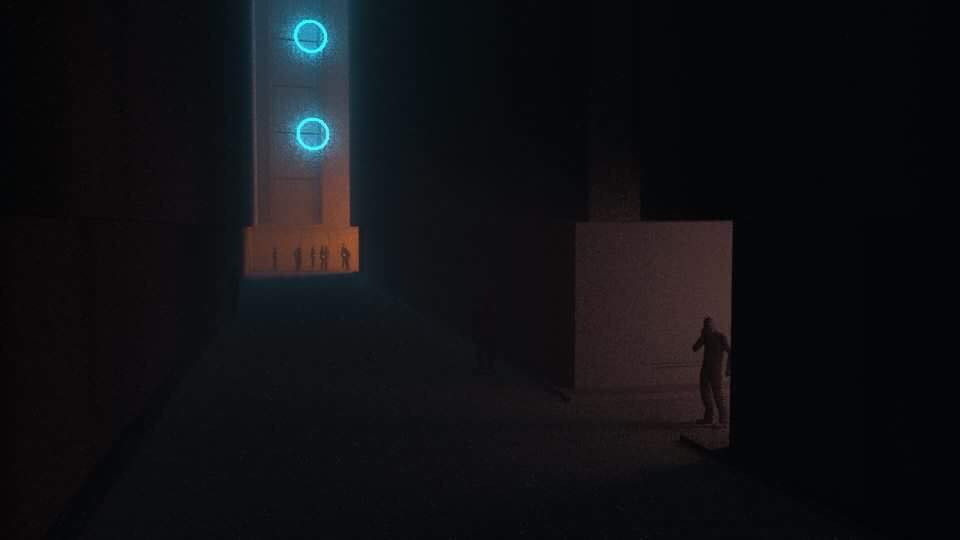
ELFS: How has it been finding locations for that?
LL: It’s been a bit of a challenge. Luckily I wrote the film with the Tokyo landscape in mind so fifty percent of it is already done just by the fact that it takes place here. One of the locations is a club, which was probably the hardest to find but we got that one locked down two weeks ago. We’ve been really fortunate with that: it just comes down to community again. Everybody in the creative scene here has just been so supportive and helpful to hand out things more or less for free.
ELFS: When you’re scouting locations, do you have a fixer, or is your Japanese good enough to do it all yourself?
LL: Luckily two out of the four locations I’ve already had a good relationship with the owners, so that was really easy. They’re all Japanese but I’ve worked with them before. The last two that I’m in talks with are a little harder. My Japanese is decent enough to do anything I want to do but to convey some sort of deep feeling and emotion is kind of hard. So probably locking down these last two locations, I will recruit a fixer to help with that. But so far it hasn’t been too bad; my Japanese is enough to get this done.
RL: Do you think when seeking locations or anything to do with making films, do you think it’s an advantage or a detriment to be foreign in Japan?
LL: In terms of locations it’s a lot harder as there’s an inherent lack of trust already off the bat, which is totally fine and reasonable. That’s probably one of the biggest problems if you don’t already have a working relationship with whomever you’re trying to secure the location from. Otherwise if they see insurance and they see you have a plan, it’s not a problem at all. I went to two locations with my art director’s look book and told them, “This is what we was to do here, is this possible?” and they were blown away by the preproduction we’d done. There was absolutely no problem.
The advantage of trying to get locations as a foreigner is looking at them with a very unique set of eyes versus being a local fixer. This just goes for anybody of any culture — you may look at a location and see it in a completely different way to someone else who is from the place.
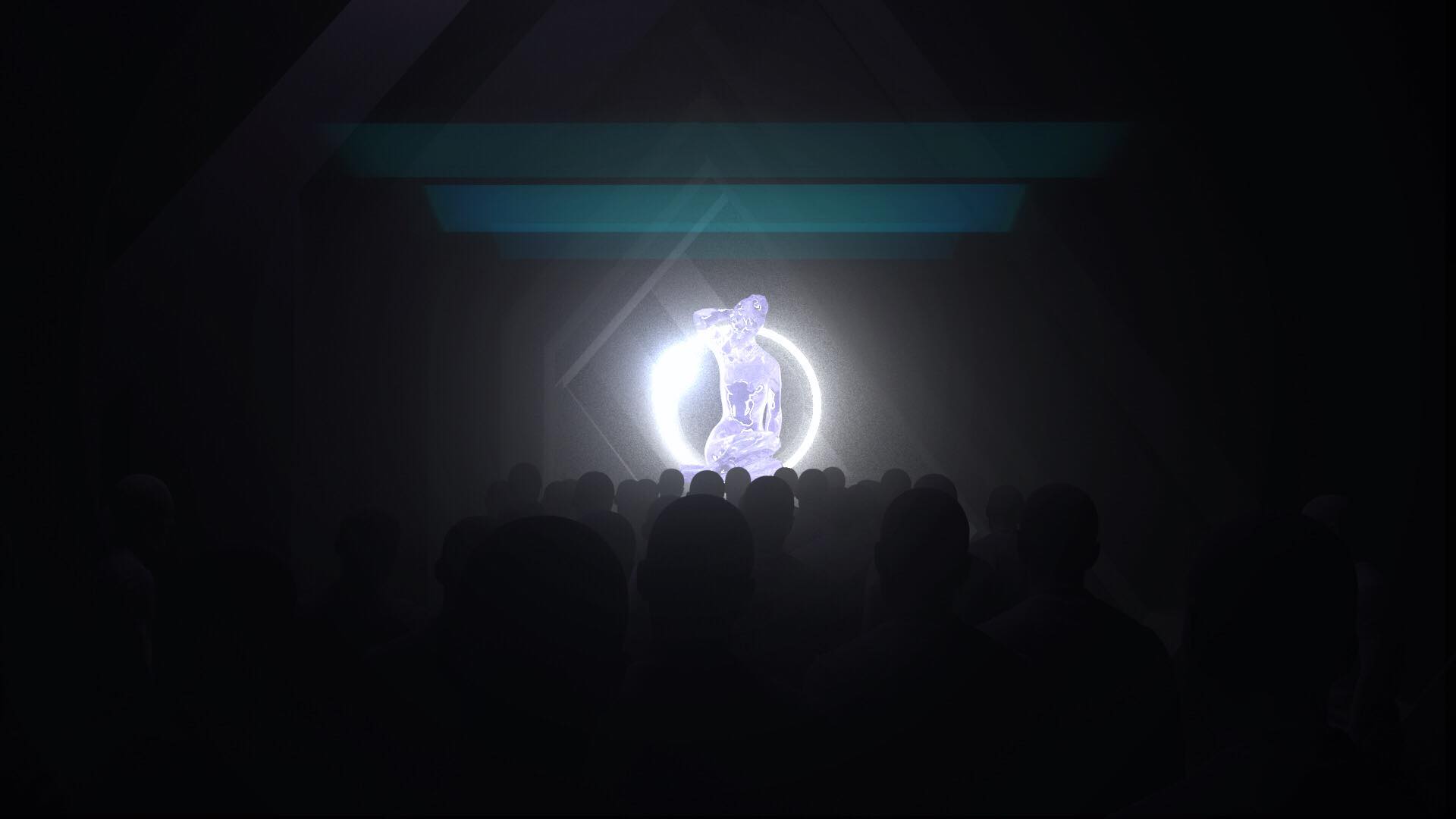
ELFS: When you are approaching a film as a director, do you come from a visual perspective? Or do you focus more on the actors initially?
LL: In preproduction, it’s 100% visual so I can pass it off to the DoP with my own shotlist and say, “This is how I want it to look in-camera,” but as guidelines to let them be as creative as they want.
Then I’ll be focusing 100% on the actors because it’s very visually driven, there’s not much dialogue so I need these actors to be emoting really well without me going, “Alright just smile,” because that’s not what a good director does. The few things that I’ve directed, I’ve never set foot in video village because I trusted my DP and it meant I could be looking at the actors. As a director, you don’t want to be watching the movie while it’s being made, at least in my opinion. If I was doing lighting, I wouldn’t put the light up then run to the monitor to check it’s good— I’d be on set with my meter. Same thing with acting; be in the moment with those actors.
As a director I think it’s really important to at least try your hand at a lot of different positions, especially acting. That way you can go to these people and not just make demands. Once you understand the vulnerability of being an actor, as a director you’ll learn not to be a dictator on set. You’ll learn how to say phrases that will actually evoke an emotion rather than a response.
ELFS: How are you funding the film?
LL: It’s being funded completely out of pocket. I had originally thought about crowdfunding it and getting as much money as I could but we now have our own camera. Everybody in this crew is dedicated and passionate about the movie; they don’t care if they get paid or not. I’m going to pay them, but it’s just really nice to not have to worry about that.
I think it’s just a really nice morale booster to get paid, even if it’s just a hundred dollars a day, regardless of your position. It does make the difference to your crew and especially as the director, you need full transparency when working with these professionals. I worked a year not getting paid doing PA work, and that was ridiculous. I was doing thirteen-, fourteen-hour days for nothing and I really don’t want anybody to go through that. I think it’s a super humbling experience but I don’t want anyone to go through that when they don’t need to.
One of the first things we learned in film school was not to feed your crew pizza. It’s just the lowest insult you could think of: it’s greasy, it’s unhealthy. If you get a person who caters really delicious, healthy food, that’s another morale boost for your set and it shows you took the time to take the right steps to make your crew happy. It’s a big thing I think a lot of people overlook, and something that doesn’t get talked about a lot, probably because it’s boring.
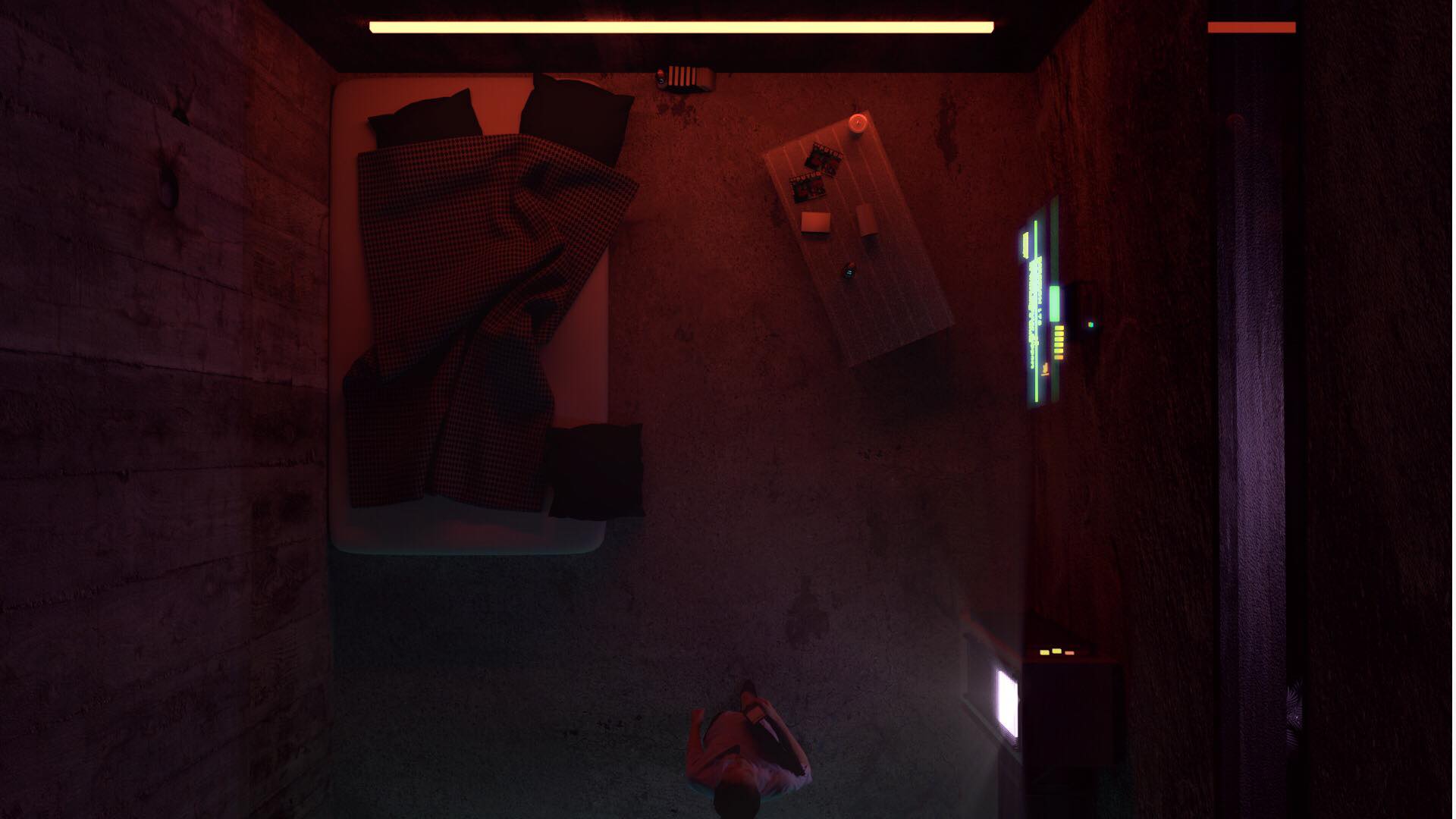
ELFS: On a more general note, what are you top tips for shooting in Tokyo?
LL: I’ve done a lot of, I guess you’d call it cityscape documentary-style filmmaking. My top tip would be to find locations that no one else has shot before. This is a massive city and it gives you an opportunity to get creative with the gear you already have.
And just be careful where you’re shooting in Tokyo. You don’t want to disrupt the flow of daily life here. That might become a problem for a lot of people who are used to whipping out their camera with their massive lens in a crowded little restaurant. If I was to walk out onto Shibuya crossing with the RED and stick it in someone’s face, they might be a little put off. You want a low-key camera, that won’t draw too much attention.
But at the same time, if you really are dedicated and you’re really trying to make a statement and evoke a feeling with the work you’re doing, you just have to put those worries aside, and shoot and film whatever you want. Especially if you’re new to the city, don’t let the culture intimidate you, don’t let it scare you into not filming. A lot of people have said it before me and a lot of people will say it after me but I think you’ve just got to get out and make films.
I do find people really don’t care about being filmed, as long as you’re nice about it; don’t just go and shove a camera in a person’s face. If you’re smiling and happy and looking like you’re having fun filming, I find that a lot of people don’t really mind. And if they do, they’ll get out of their way, which is their right.
ELFS: How do you balance having a day job with running your own company, with having a personal life as well.
LL: Do you ever have a balance? You have to dedicate certain days to certain tasks. The rental business runs itself but the planning process took a long time. Filmmaking is an ongoing thing and inspiration can come at any time. The biggest time consumer is the nine-to-five, and that’s dedicated hours when I can do nothing else. Luckily they’re pretty relaxed at this job and I can write notes whenever I want but I think it’s important to decide what’s important to you. Either your priority is reaching the top at whatever company you’re working your day job at, or you’re really passionate and dedicated about making movies so you’re doing that when you get home and when you wake up.
I don’t know if I can say dedicate thirty percent of your day to this and thirty percent of your day to that — I don’t think that would ever work out. Also it’s good to be always working with people, as art, especially filmmaking, is a very collaborative thing, unless you’re Robert Rodriguez. Also, your personal life is usually the last thing you take care of, but it should be the first, because that’s your health. But artists kill themselves for their art, I guess.
Find out more about Temple Studios via the Temple Studios Website or visit their Facebook Page.
